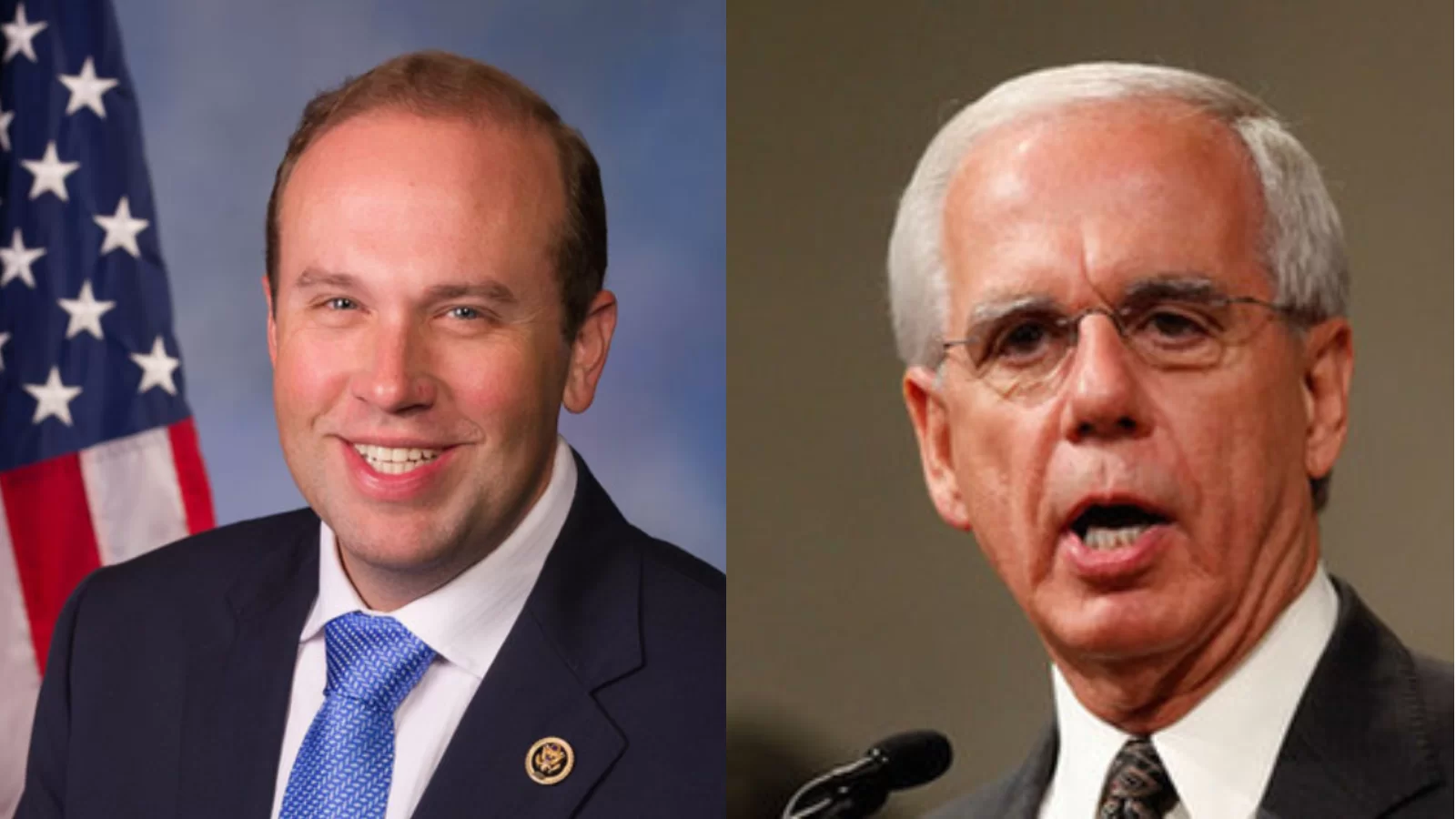U.S. Rep. Jason Smith (R-MO-8), left, and former U.S. Rep. Tony Coelho (D-Calif.), chairman, Partnership to Improve Patient Care | House.gov / Pipcpatients.org
U.S. Rep. Jason Smith (R-MO-8), left, and former U.S. Rep. Tony Coelho (D-Calif.), chairman, Partnership to Improve Patient Care | House.gov / Pipcpatients.org
The U.S. House recently passed Missouri U.S. Rep. Jason Smith’s (R-8) bill to ban federal health care programs from “using prices that are based on quality-adjusted life years” (QALYs), but the chair of a national patient care group said until that bill is signed into law, a state-level bill “is needed to protect people with disabilities.”
Smith’s bill, H.R. 485, would prohibit “all federal health care programs, including the Federal Employees Health Benefits Program, and federally funded state health care programs (e.g., Medicaid) from using prices that are based on quality-adjusted life years (i.e., measures that discount the value of a life based on disability, age, or terminal illness) to determine relevant thresholds for coverage, reimbursements, or incentive programs,” according to the bill summary.
Former U.S. Rep. Tony Coelho (D-Calif.), chairman of the Partnership to Improve Patient Care (PIPC), said that until this federal bill is passed, "state-level action" is needed.
“Without a consistent federal policy across federal programs, state-level action to ban QALYs and similar measures is needed to protect people with disabilities and serious chronic conditions from discrimination,” Coelho told Show Me State Times.
Originally sponsored by U.S. Rep. Cathy McMorris-Rodgers (R-WA), HR. 485 passed the House on a vote of 211 - 208 and has been referred to the U.S. Senate Committee on Finance.
As that bill awaits action in the U.S. Senate, a state-level bill to ban QALYs passed both houses of the Oregon legislature last month. Coelho had testified in support of that bill.
"As you may be aware, HHS denied Oregon’s original Medicaid waiver in 1992 because its use of these measures to prioritize the list of covered health care services was discriminatory,” said Coelho is his testimony. “I applaud recent efforts in Oregon to end their ongoing use. But the need to do so underscores why legislation is required - to make it a law that discrimination has no place in Oregon’s health system.”
The Oregon bill is awaiting signature of Gov. Tiny Kotek (D).
Proponents of using QALYs say that it helps ensure cost-savings in the federal and state health programs, but Coehlo said “it’s not right for patients and people with disabilities to be caught in the middle of this fight to lower health care costs.”
“Reliance on cost-effectiveness thresholds is intended to standardize and limit care options, replacing deeply personal, individual health care decisions with an algorithm that does not address the needs of different patients and people with disabilities,” he said.






 Alerts Sign-up
Alerts Sign-up